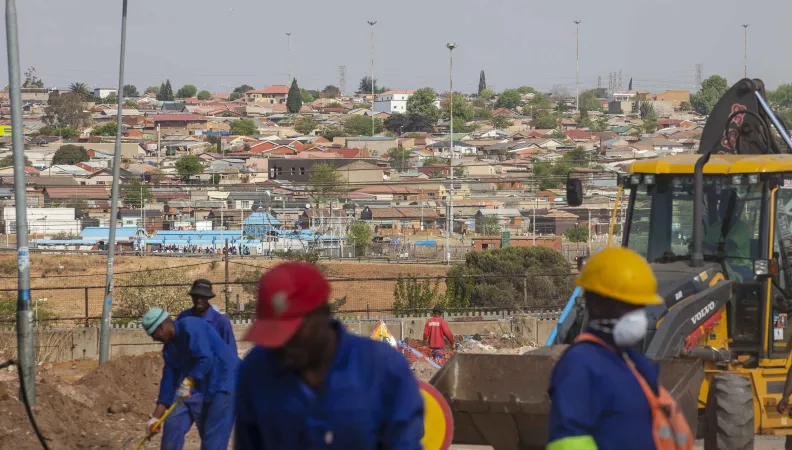Share the page
Redesigning the South African “Social Relief Distress” grant program for higher impact

-
Project start date
-
2023Status
Completed
-
Project end date
-
2023
-
AFD financing amount
-
25000
-
Country and region
-
Partners
-
Research program
How could the Social Relief Distress grant be redesigned to maximize impact on poverty and unemployment reduction, while being sustainable in the longer term? The Extension of the EU-AFD Research Facility on Inequalities will seek to answer this question in partnership with SALDRU (University of Cape Town – Southern Africa Labour and Development Research Unit).
Context
South Africa’s Economic Reconstruction and Recovery Plan was launched in October 2020 by the Presidency in response to the economic impacts of the Covid-19 pandemic. Besides the Presidential Employment Stimulus program, it included emergency social protection measures, among which the introduction of a special Covid-19 Social Relief of Distress grant (SRD), providing ZAR350 per month for unemployed people not covered by any other form of support. The South African government now seeks to develop options for the future of SRD grant.
This project is part of the Extension of the EU-AFD Research Facility on Inequalities. Coordinated by AFD and financed by the European Commission, the Extension of the Facility will contribute to the development of public policies aimed at reducing inequalities in four countries: South Africa, Mexico, Colombia and Indonesia over the period 2021-2025.
Objectives
The objective of this research project is to produce motivated recommendations on how the SRD should be designed going forward into the longer term, in order to maximize the impact of the grant on employment outcomes and to ensure it effectively reduces poverty, while maintaining its cost to an acceptable level:
- To maximise the impact of the grant on employment, the project needs to understand how to design and label the grant to encourage its use for job search.
- To ensure the grant effectively reduces poverty, the project must figure out the most cost-effective way to target and assess the eligibility of recipients. Moreover, poverty reductions can be scaled up by determining measures that could encourage take up among the most disadvantaged.
Once these goals have been achieved, and in order to inform public decision-making, these findings must be communicated to a number of stakeholders in government and civil society.
This project is part of a wider research program conducted with several South African research centres and in close collaboration with the South African Presidency. Four other research projects analysing the externalities of the Covid-19 stimulus policy are currently being developed as part of the first pillar of the Extension's activities in South Africa.
Method
This research project uses the model generated to conduct the 2014/2015 fiscal incidence assessment and introduces updated data for 2019-2021. It simulates five scenarios around eligibility criteria, targeting mechanisms, value, disbursement model and conditionalities and computes the potential impact on poverty and employment outcomes.
Publications
You will find below the research paper related to this project:
Contact
- Anda David, AFD Research Officer
